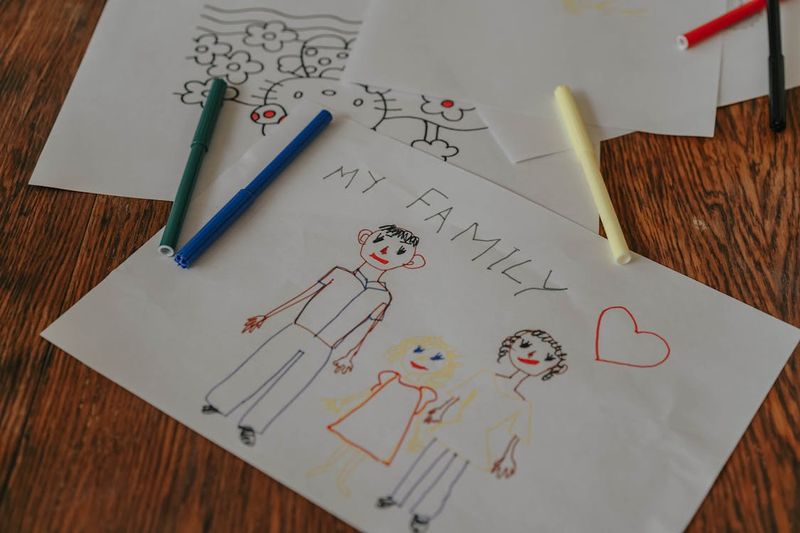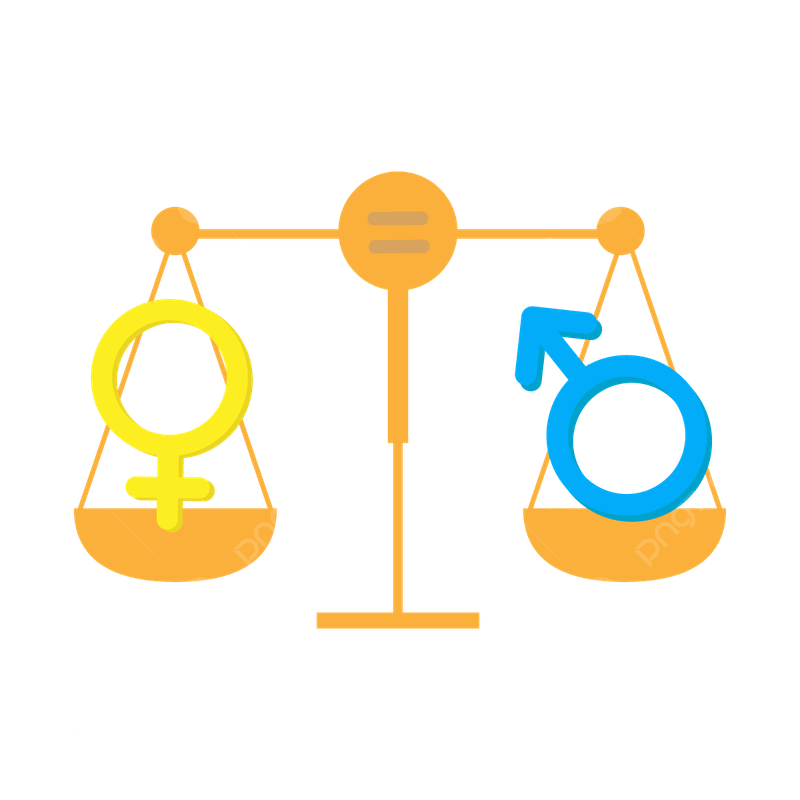15 Outdated Divorce Myths That Make It Harder to Heal — and 5 Proven Strategies to Thrive Afterward
Divorce, a deeply personal journey, often comes with societal baggage that hinders healing. Myths, born from outdated social norms and misconceptions, can make moving on challenging.
This blog busts 15 such myths, encouraging a healthier perspective, and introduces 5 strategies to truly thrive post-divorce. From the misconception that divorce signals failure to the damaging belief that closure depends on your ex, these myths create unnecessary barriers.
Addressing them can pave the way for genuine recovery. Meanwhile, strategies like setting emotional boundaries and rediscovering oneself offer practical steps towards building a fulfilling life. Let’s dismantle these myths and embrace the truth for better healing and growth.
1. Divorce means you’ve failed

Many people believe that divorce signifies failure, but this is a myth. Relationships are complex, and sometimes they end for valid reasons, such as personal growth or mutual respect. Divorce can be a courageous step toward a healthier and more fulfilling life. It is essential not to view it as a personal failure but as an opportunity to learn and grow.
Society’s stigma around divorce can be damaging, but reframing it as a new beginning is empowering. Remember, success isn’t always about staying together; it’s about being true to yourself and your well-being. Accepting this can lead to a more positive recovery process.
2. If you really loved them, you’d stay

The idea that true love means staying together despite everything is a romanticized myth. Love is essential, but it doesn’t solve all relationship problems. Sometimes, love involves recognizing when it’s time to part ways for the betterment of both individuals. Staying in an unhealthy relationship can cause more harm than good.
It’s important to understand that leaving doesn’t mean love wasn’t real but that circumstances changed. Acceptance of this truth can be liberating, allowing people to cherish the good memories while moving forward with life. It’s about prioritizing emotional health and personal growth over societal pressures.
3. Good parents never get divorced

The belief that divorcing makes one a bad parent is misleading. Parenting quality isn’t determined by marital status but by the love, support, and stability provided to children. Divorced parents can be exemplary by prioritizing their children’s needs, maintaining healthy communication, and fostering a supportive environment.
Divorce can sometimes lead to better parenting as individuals focus on self-improvement and create a more peaceful home atmosphere. It’s crucial to dispel the myth that good parenting and divorce are mutually exclusive. Understanding this helps parents focus on what truly matters – their children’s well-being and happiness.
4. Your ex has to be your enemy now

The notion that divorced individuals must become enemies is an outdated belief. Maintaining civility and mutual respect can lead to a healthier post-divorce relationship. Effective co-parenting and personal peace often depend on letting go of animosity. While it’s not always possible to remain friends, treating each other with dignity can ease the transition for everyone involved.
This approach benefits children, who thrive in less contentious environments. Reframing the relationship from adversarial to amicable can reduce stress and promote healing. It’s about finding balance and focusing on the future rather than dwelling on past conflicts.
5. You should bounce back quickly

The pressure to quickly recover from a divorce is unrealistic. Healing is a personal journey that varies for everyone. Society often emphasizes speed over depth, leading individuals to suppress emotions rather than process them. Taking time to grieve, reflect, and grow is essential for genuine recovery.
Rushing through this process can lead to unresolved feelings and future relationship challenges. It’s important to allow oneself the time needed to heal fully and authentically. Embracing this journey rather than adhering to a timeline fosters deeper self-awareness and resilience for a brighter future.
6. You’re too old to start over

Age should never be a barrier to starting anew after divorce. The myth that starting over is only for the young is rooted in societal ageism. Many find new love, passions, or careers later in life, proving that growth and happiness aren’t confined to youth.
Embracing change can lead to exciting and rewarding experiences regardless of age. It’s about redefining one’s narrative and seizing opportunities for personal fulfillment. Life offers endless possibilities, and age brings wisdom, making new beginnings all the more meaningful. Challenging this myth opens doors to a vibrant and enriching future post-divorce.
7. You’ll never find love again

Believing that love ends with divorce is a limiting myth. Many find profound and meaningful relationships after their first marriage. Divorce can offer insights into personal needs and desires, leading to more fulfilling connections in the future. Love isn’t limited by past experiences; it’s enriched by them.
Opening oneself to new possibilities can bring unexpected joy and companionship. The world is vast, and opportunities for love abound when one is open to them. Dispelling this myth allows individuals to embrace a hopeful outlook, understanding that love can be found at any stage of life.
8. Therapy is only for “broken” people

The misconception that therapy is only for those who are ‘broken’ is harmful. Therapy is a tool for growth, reflection, and healing, accessible to everyone. It provides a safe space to explore emotions, develop coping strategies, and gain insight into personal patterns.
Seeking therapy post-divorce is a proactive step toward emotional well-being, not a sign of weakness. It can help individuals process the past and prepare for a brighter future. Embracing therapy as a resource rather than a stigma empowers individuals to navigate life’s changes with resilience and clarity. It’s about nurturing mental health and thriving.
9. The one who leaves is the villain

Often, the individual who initiates a divorce is unfairly labeled as the villain. This myth ignores the complexities of relationships and the courage it takes to make difficult decisions. Leaving may stem from a desire for self-preservation or growth, rather than malice. It’s essential to understand that both parties have their perspectives and reasons.
Viewing the leaver as a villain simplifies a nuanced situation, fostering unnecessary resentment. Recognizing the bravery in seeking a healthier path can lead to mutual respect and understanding. It’s about acknowledging the humanity in each other’s choices.
10. You should be friends with your ex “for the kids”

The pressure to maintain a friendship with an ex solely for the children’s sake can be misguided. Co-parenting effectively doesn’t necessitate friendship but requires respect and communication. Forcing a friendship may lead to tension, impacting the children’s well-being. Prioritizing a civil and cooperative relationship is more beneficial than an artificial friendship.
Children benefit most from seeing their parents work together respectfully, even if they aren’t friends. It’s about creating a stable and supportive environment rather than fulfilling a societal expectation. Dispelling this myth allows for healthier co-parenting dynamics.
11. Divorce ruins the kids forever

The belief that divorce irreparably damages children is an exaggerated myth. Children are resilient and can thrive post-divorce with the right support and environment. It’s not the divorce itself, but the handling of the situation that impacts children the most.
By ensuring open communication, consistency, and love, parents can help children adjust and even grow through the experience. Creating a nurturing atmosphere with stability and understanding fosters resilience and happiness. Addressing this myth encourages a focus on positive parenting and the emotional health of the children involved.
12. Women always get the better end in divorce

The stereotype that women always benefit more from divorce is misleading. Divorce settlements are complex and depend on various factors like income, custody, and contributions to the marriage. Each case is unique, and generalizing outcomes oversimplifies the legal and personal nuances involved.
Both men and women can experience gains or losses depending on their circumstances. Understanding this helps dispel gender-based myths and promotes a fairer view of divorce proceedings. Focusing on equitable solutions rather than stereotypes fosters a more realistic understanding of divorce outcomes.
13. You need to explain your decision to everyone

Feeling compelled to justify a divorce to everyone is an unnecessary burden. Personal decisions, especially in relationships, are private and don’t require public validation. Explaining the reasons for divorce is a personal choice and should be respected as such.
This myth pressures individuals to seek approval, hindering personal healing. It’s important to prioritize one’s own well-being and boundaries over satisfying others’ curiosity. Understanding this empowers individuals to move forward confidently without the need for external validation. It’s about embracing personal agency and focusing on one’s path.
14. Moving on means dating again

The idea that moving on post-divorce requires immediate dating is a narrow view. Healing and growth are personal journeys that can be fulfilling without rushing into new relationships. Rediscovering oneself, pursuing interests, and rebuilding life independently can offer profound satisfaction. New relationships will develop naturally in time, but they aren’t the sole indicator of moving on.
Embracing solitude and self-discovery enriches the journey post-divorce, fostering independence and self-awareness. Dispelling this myth allows individuals to redefine what happiness and moving on mean for themselves, free from societal pressures.
15. Closure comes from your ex

The belief that closure must come from an ex is a myth rooted in dependency. True closure comes from within, through personal reflection and acceptance. Relying on an ex for closure can prolong emotional turmoil and hinder healing. Empowering oneself to seek closure independently fosters resilience and growth. It’s about finding peace with past experiences and learning from them.
Understanding this allows individuals to move forward with strength and clarity, without being tethered to past relationships. Embracing this empowers personal healing and the ability to create a fulfilling future. Some other things you could also do to help yourself thrive are:
1. Set emotional boundaries, not just legal ones

Beyond legal arrangements, setting emotional boundaries is crucial post-divorce. Emotional boundaries protect well-being, providing space to heal and grow. They help define personal limits, ensuring interactions with an ex remain respectful and beneficial. Establishing these boundaries prevents emotional entanglement and fosters independence.
It’s about being clear on what is acceptable and focusing on self-care. Embracing this strategy aids in creating a healthier, more balanced life post-divorce. Prioritizing emotional boundaries supports personal growth and peace, allowing individuals to build a new life on their terms.
2. Focus on creating a future, not fixing the past

Post-divorce, focusing on the future rather than dwelling on the past is essential. Creating new goals and aspirations provides direction and hope. It shifts energy from regret to building a fulfilling life ahead. While reflection is part of healing, it’s important not to get stuck in past mistakes.
Emphasizing future possibilities encourages growth and resilience, paving the way for new opportunities. It’s about embracing change and allowing oneself to evolve. This strategy leads to a more optimistic outlook and the potential for a vibrant new chapter.
3. Build a support system that doesn’t center your ex

Building a support system independent of an ex is vital for personal growth. Friends, family, and communities provide strength, offering diverse perspectives and encouragement. A network that doesn’t revolve around the ex allows for unbiased support and healing.
It fosters a sense of belonging and independence, essential for moving forward. Engaging with people who uplift and inspire contributes to a positive and nurturing environment. This approach encourages focusing on personal needs and new relationships, essential for healing and thriving post-divorce.
4. Relearn who you are outside of “we”

Rediscovering oneself outside of a past relationship is a journey worth embarking on. Divorce offers an opportunity to explore individual interests and passions. It’s about reconnecting with oneself and embracing personal identity. Trying new hobbies, setting personal goals, and reflecting on one’s desires contribute to this process.
This discovery phase is empowering, allowing individuals to redefine who they are on their terms. Embracing this strategy fosters confidence and self-awareness, paving the way for a fulfilling life beyond the prior marriage. It’s about valuing individuality and personal growth.
5. Give yourself time—and then more time

Allowing time for healing post-divorce is vital. Recovery isn’t linear, and giving oneself grace during this time is essential. Embracing the process without rushing cultivates depth and understanding. It’s about acknowledging emotions and letting time naturally bring clarity and peace.
This patience fosters resilience and self-compassion, vital for genuine recovery. By allowing more time than anticipated, individuals can reach a place of contentment and readiness for new experiences. This gentle approach supports a healthier, more fulfilling journey towards wholeness and happiness.







